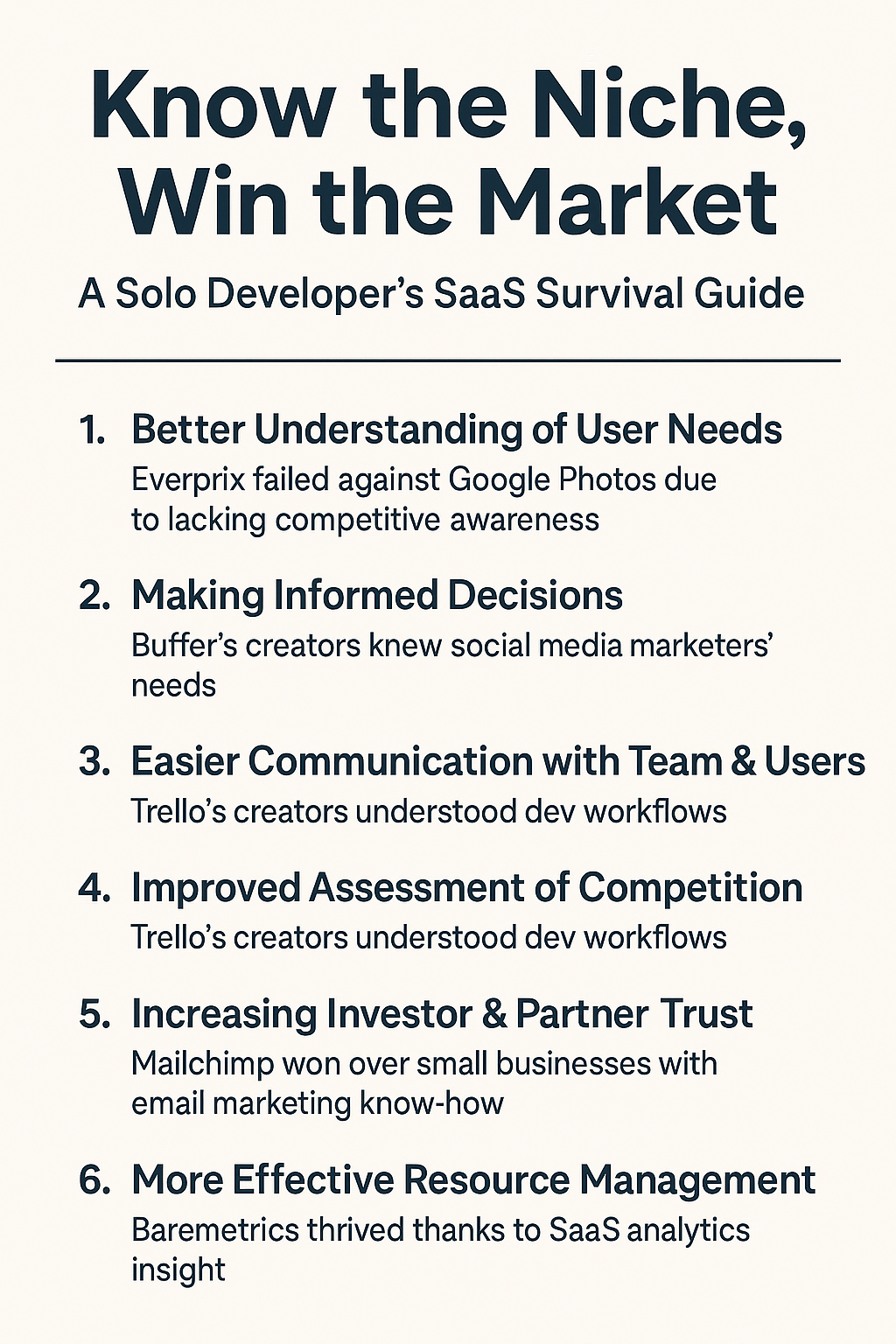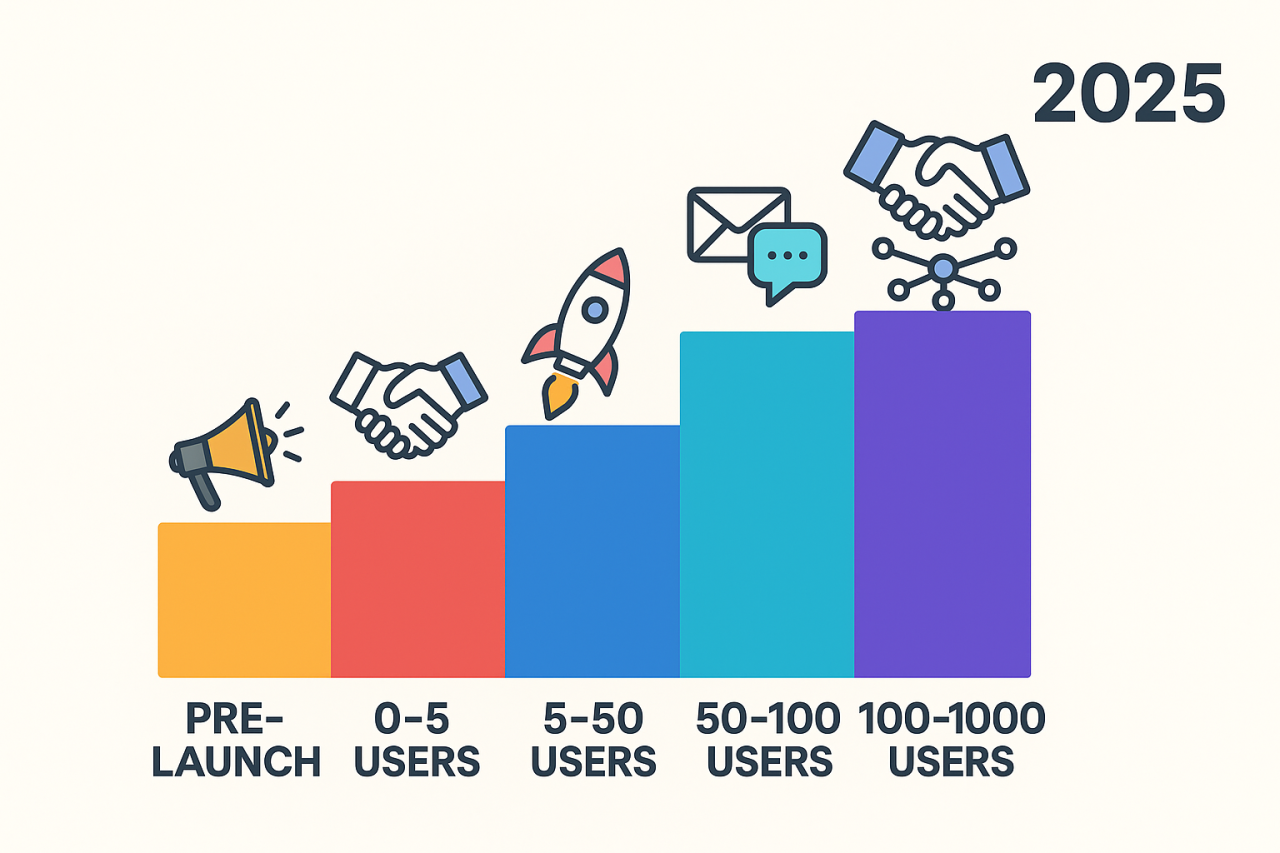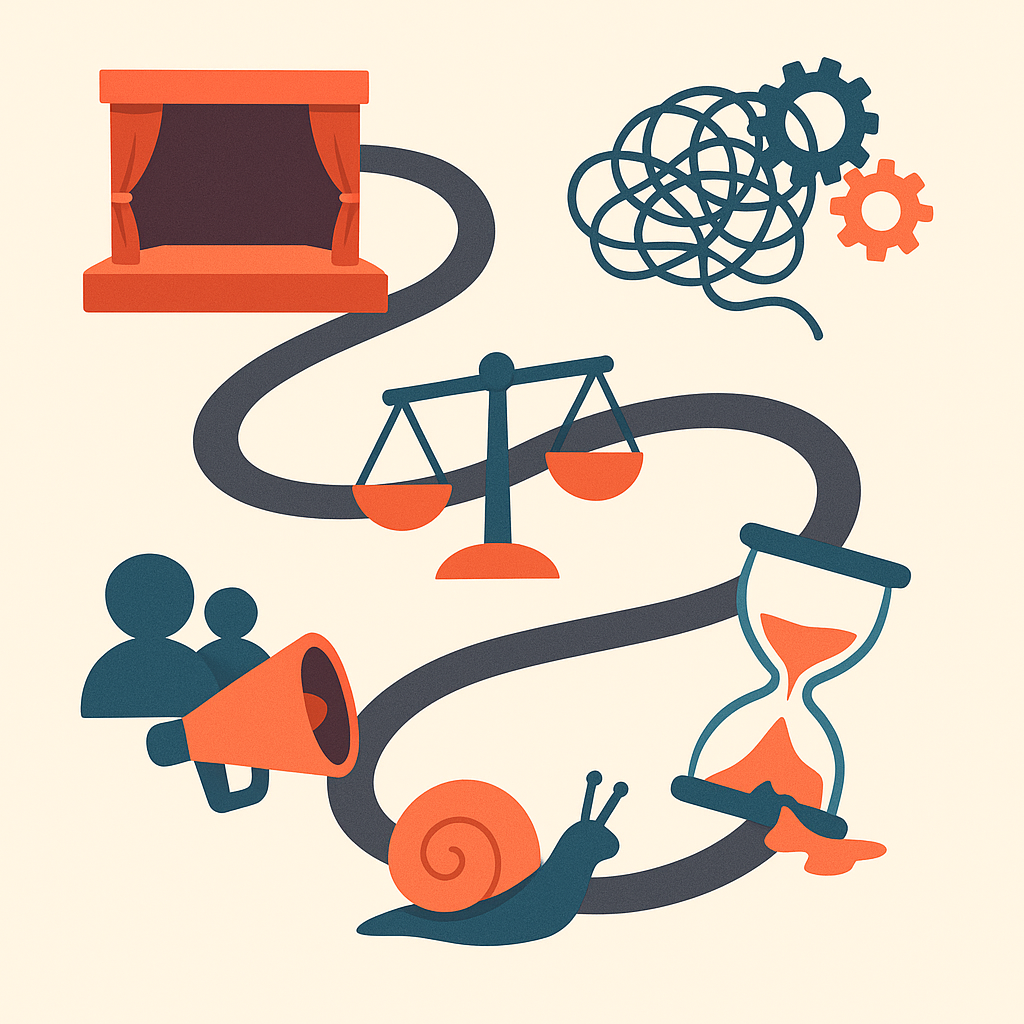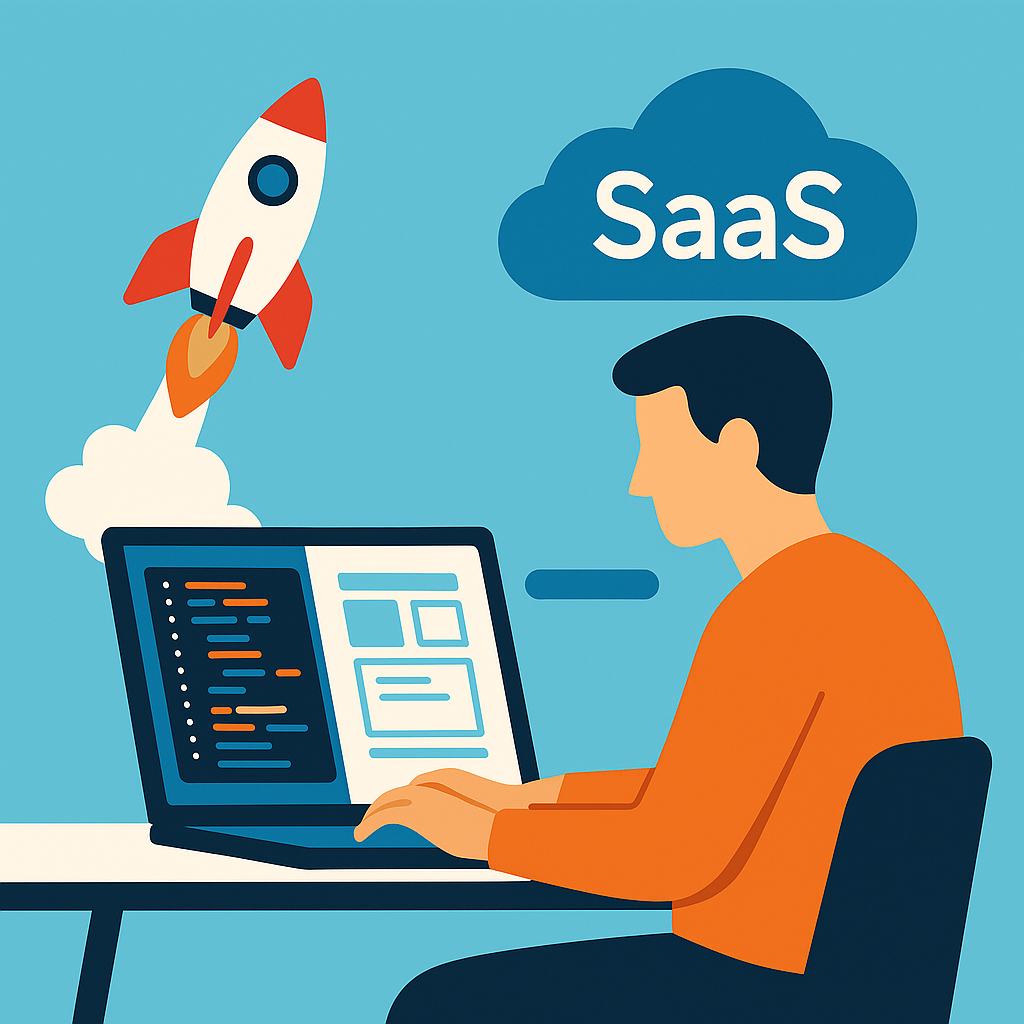Building a SaaS product as a solo developer or indie founder is a thrilling ride—especially when it's a project you’re passionate about. But here's the catch: passion without a clue about the actual problem you're solving usually leads to another abandoned side project. This article breaks down exactly why having at least a mid-level understanding of your niche is not just helpful, but critical for creating a product people actually use—and pay for.
May 22 2025 • 5 min read • 808 words
Stop Building Blind: Why You Need to Know Your Niche Before Building a SaaS

You Can't Solve a Problem You Don't Understand
Imagine building a SaaS tool for freelance writers when you’ve never freelanced a day in your life. You might focus on bells and whistles (word counters, fancy dashboards), but miss the actual pain points (client reminders, invoice tracking, deadline dashboards).
Solo founder Paul Jarvis, for example, built "Fathom Analytics" because he was fed up with bloated tools like Google Analytics. His experience with privacy-conscious clients gave him the insights needed to craft a dead-simple analytics dashboard with a privacy-first pitch. Without that background? He might have just built a GA clone that nobody needed.
When you know the field, you know what features matter and what can wait. That means faster development, less bloat, and more traction.
Pieter Levels' "Nomad List" started as a simple spreadsheet. Why? Because as a digital nomad, he knew the exact three filters that mattered: cost, safety, and internet speed. He didn’t waste time building a complex travel site—just a simple tool that answered the real questions.
Don’t start coding immediately. Start by listing the top 5 pain points you’ve personally faced or observed in the niche. Your MVP should solve one of those very well.
When you're speaking your users' language, they trust you. It doesn’t matter if your UI isn’t perfect or your pricing page is wonky—if users feel you get them, they’ll give you feedback, help you iterate, and even forgive bugs.
"Transistor.fm" was created by podcasters for podcasters. The founders knew how creators think, so they spoke directly to those pain points: "Forget confusing RSS settings, just upload your audio."
Write your landing page like you're explaining it to a colleague in your niche over coffee. Cut the tech jargon. Use the exact phrases your audience uses in forums, Reddit, Slack groups.

You'll Spot Red Flags Others Miss
If you know the terrain, you’ll see problems coming. That includes compliance hurdles, product-market mismatch, or even cultural taboos. A dev unfamiliar with healthcare might launch a health tracker SaaS—only to later discover it’s illegal to collect certain types of personal data without HIPAA compliance. That’s not just a bug. It’s a lawsuit waiting to happen.
Read the industry’s top 3 newsletters or blogs for 30 days before you build. It’ll give you a radar for red flags and a mental map of where things are headed.
When you know the niche, you stop second-guessing yourself. You're not just a dev with an idea—you’re a peer offering a tool to solve a shared problem. SaaS products with domain-expert founders are 2.3x more likely to reach profitability within the first 2 years compared to those launched by generalists.
Arvid Kahl built "FeedbackPanda" for online teachers—a job his partner was doing. He wasn’t guessing the pain points; he was watching them unfold at home. That insight helped them hit $55K MRR and a successful exit.
Knowing your field means knowing your competitors—not just their feature list, but their failings. For example, a solo founder who built a habit tracker realized all the big players focused on individual users. She pivoted and made her product team-oriented (daily check-ins, leaderboards). That tiny twist turned her app into a Slack darling.
Do a feature map of 3 competitors. List what they do well, where users complain, and what’s missing. Your gap = your goldmine.
If you know where your audience hangs out—because you’re one of them—you don’t need to hire marketers. You just need to show up and share value. Example: A developer who built a finance tool for solopreneurs grew to 1,000 paid users in 6 months just by participating in indie maker forums and YouTube comments. Why? Because his posts weren’t ads—they were helpful insights.
You don’t need a PhD in the field. But if you’re not at least kinda familiar with the space you’re building for, you're building blind. That’s not being lean—that’s gambling. Solo founders who win consistently aren’t just great coders. They’re people solving their own problems, for others just like them. So before you spin up that Laravel project or fire up VSCode—ask yourself: Do I actually understand this user’s world? If not, go live in it a while. Lurk. Ask. Read. Then build. That’s how indie devs build profitable SaaS products. One relevant problem at a time.
You might like

Users vs. Customers in SaaS: Understanding the Difference and Driving Conversions
May 08 2025
From 0 to 1,000 Customers: How to Reach 1,000 Customers for Your SaaS Platform
May 09 2025
Avoidable Tech Startup Mistakes: Six Pitfalls to Dodge
May 10 2025
The Broke Shopper’s Paradox—and What SaaS Makers Should Know
May 09 2025